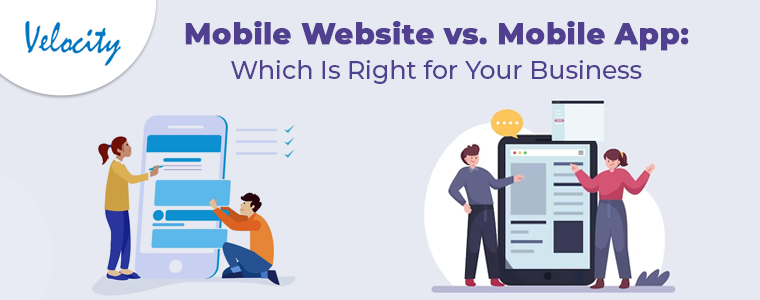Mobile app builder technology has come a long way since the Introduction of smartphones. From simple apps that allowed us to make calls and send text messages, to complex applications that allow us to do everything from ordering groceries to booking flights, mobile app builder technology has revolutionized the way we interact with our devices.
In recent years, mobile app builder technology has seen a significant surge in growth. Further, businesses and individuals are turning to mobile apps as a way to streamline processes. Also, it helps to improve user engagement. In this article, we can expect to see several trends and future developments that will enhance mobile app builder technology.
Progressive Web Apps
Progressive web apps (PWAs) are web-based applications that function like native apps, providing users with a seamless mobile experience. Further, PWAs can be accessed through a web browser, eliminating the need for users to download an app from an app store. PWAs offer several benefits over traditional mobile apps, including faster load times, lower development costs, and the ability to work offline.
Low-Code Platforms
Low-code platforms are a game-changer for businesses looking to build mobile apps without extensive technical knowledge. These platforms enable users to build apps using an easy interface, eliminating the need for complex coding. This means that businesses can build and launch apps faster than ever before, without having to rely on external developers. As low-code platforms continue to improve, we can expect to see a rise in the number of businesses creating their mobile apps.
Artificial Intelligence
Artificial intelligence (AI) has already begun to make its mark on mobile app builder technology. With the ability to analyze vast amounts of data, AI can help businesses create highly personalized mobile apps. Further, these apps can be tailored to individual user preferences. AI can also help to improve user engagement by suggesting new content, providing recommendations, and even predicting user behavior.
Cross-Platform Development
Cross-platform development is becoming popular as businesses seek to reach a major audience group with apps. This development enables businesses to create apps that work across multiple operating systems, including iOS and Android. Moreover, cross-platform development is possible without the need to create separate apps for each platform. Additionally, this means that businesses can reach a wider audience with their apps. They can reach out without having to invest additional time and resources in development.
Internet Of Things (IoT)
As the Internet of Things (IoT) continues to grow, we can expect to see an increase in the number of mobile apps that integrate with IoT devices. Mobile apps can act as a hub for IoT devices, enabling users to control and monitor their devices from their smartphones. This integration will enable businesses to create new opportunities for engagement with their customers. Additionally, it will also improve the functionality of IoT devices.
Blockchain
Blockchain technology has the potential to transform mobile app builder technology. Additionally, it provides a secure and transparent platform for app development. Moreover, by using blockchain technology, businesses can ensure that their mobile apps are secure. Also, blockchain can help to reduce the risk of fraud and ensure that app transactions are processed efficiently.
Virtual Reality (VR) And Augmented Reality (AR)
Virtual reality (VR) and augmented reality (AR) are becoming popular in mobile app development. Further, these technologies offer businesses the ability to create alluring experiences for users. This enables them to interact with products and services in new and innovative ways. As the technology behind VR and AR continues to improve, we can expect to see an increase in the number of mobile apps that incorporate these technologies.
Importance Of UI/UX
As businesses and individuals continue to adopt mobile app builder technology, we can expect to see a continued emphasis on user experience (UX) design. UX design is crucial to the success of any mobile app, as it directly impacts user engagement and retention. As such, businesses are investing in UX designers who specialize in creating intuitive and user-friendly interfaces.
Chatbots
Another trend that we can expect to see is the increased use of chatbots and voice assistants within mobile apps. Chatbots and voice assistants can help to improve user engagement by providing personalized recommendations and answering user questions in real time. They can also help to streamline processes by automating certain tasks, such as scheduling appointments or placing orders.
In the End!!
In conclusion, mobile app builder technology is evolving at a rapid pace, with new trends and developments emerging all the time. Low-code platforms, AI, cross-platform development, PWAs, IoT, blockchain, and VR and AR are just a few of the trends that are shaping the future of mobile app builder technology.
If you are interested in a mobile app for your business then kindly connect with our team at [email protected]. We will assist you with the apps for your business and also with any customizations as per your business requirements.










